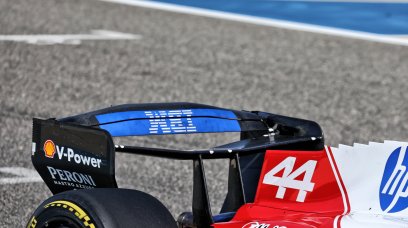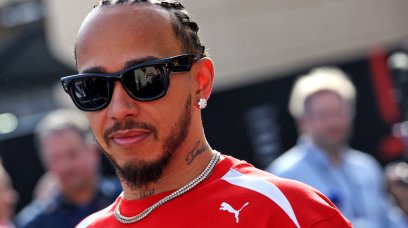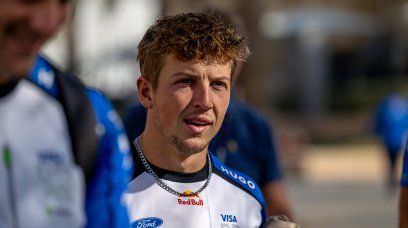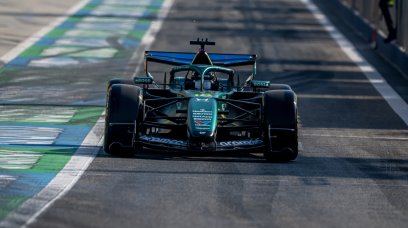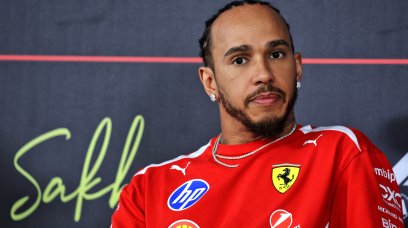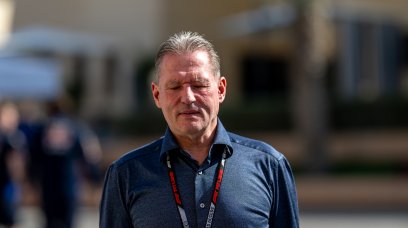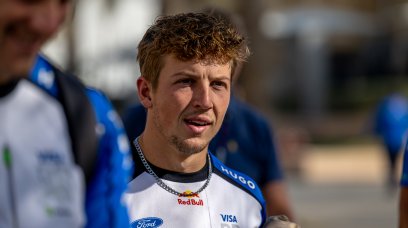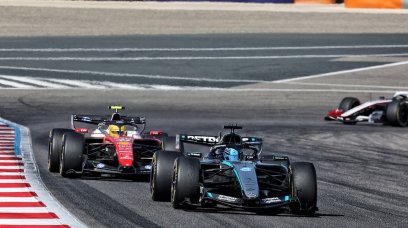The last time I spoke to Christian Horner, I asked him how it feels to have a target on his back. I wanted to know whether he prefers the feeling of being in that position. “Look, whether you’re the hunter or the hunted, it’s just about focusing on yourself,” he replied. Having spent the best part of a decade as the hunter tracking down Mercedes, over the course of just two years Red Bull had most definitely become the hunted. Under the stewardship of Horner, the team had just successfully navigated a second consecutive double-title-winning F1 season. In fact, it had not just navigated it, Red Bull had conquered all before it. 21 wins from 22 grand prix in the most dominant year in the championship’s history. Further still, Red Bull had utterly destroyed the opposition – routinely romping home to victory, particularly at the hands of champion driver, Max Verstappen, who took 19 of those wins. We will likely never know just how good the RB19 was, but that is neither here nor there. Before its successor could be unveiled, Red Bull’s world was turned on its head. In the weeks that followed, internal dysfunction and controversy bred rumour and speculation – even when the RB20 proved to be just as good as the car that came before it. The juxtaposition was something to behold. Not even during the dizzying heights of Sebastian Vettel’s F1 reign had Red Bull been so strong on the track. But off it, the team was mired in what looked to be the early stages of a full-blown civil war.
Battle lines drawn
What transpired over the opening two rounds of the season is well documented – battle lines drawn and suggestions of break clauses in contracts that could facilitate Verstappen seeking pastures new earlier than expected. A shrewd operator, Mercedes team principal Toto Wolff saw his opportunity and seized it. The photo of him with Verstappen’s father, Jos, in Bahrain was but the opening salvo, and by the time the season was finished with Australia, the Austrian had let his intentions be known. Verstappen had always been somewhat of a ‘one that got away’ for Wolff, so when presented with the chance to fan the flames of discontent, he took it. “It’s a kind of relationship that needs to happen at a certain stage, but we don’t know when," he said, before asserting that Verstappen would be his number one pick for Lewis Hamilton’s soon-to-be-vacated seat at Mercedes. If it came to it, that is.
Fast-forward a month, to where we are now. Red Bull and Verstappen have just made it four wins from five grand prix and five pole positions from five to start the year. Yet still, through the domination of a near-unbeatable combination, Wolff persists with his prolonged pursuit. Horner’s patience, meanwhile, is starting to wear thin. After the Chinese Grand Prix, the Mercedes team principal suggested more than wins and championships are needed to keep a driver – his latest move in his quasi-courtship of Verstappen. Horner had heard enough. It is covering well-trodden ground, but the Red Bull team principal fired back at Wolff , questioning why he is so insistent on focusing on drivers who are unavailable, submitting that his counterpart should be more paying more attention to other factors in order to close the performance gap that has grown between their teams. However, Verstappen has yet to unequivocally state he will be at Red Bull next year and in future seasons, so the uncertainty remains. And that is what Wolff is grabbing hold of.
Whether you’re the hunter or the hunted, it’s just about focusing on yourself.
Christian Horner
But the broader questions remain: why is Wolff intent on re-engaging the hostilities with his great adversary, and why now? Horner and Wolff’s rivalry was forged in the crucible of the 2021 F1 season – the most closely fought and tense in recent memory. As Verstappen and Hamilton went blow for blow on track, so too would Horner and Wolff off it. It is no coincidence the Austrian has chosen now to re-ignite their bitter feud. Wolff senses weakness. Vulnerability. An exposed underbelly. And it is not so much about winning the signature of Verstappen as it is a concerted effort to destabilise Red Bull. In the film the Ides of March, set during the Democratic primaries of a presidential election, Paul Giamatti’s character uses rising political strategist Ryan Gosling as a pawn in a bid to win the Ohio state primary for his candidate. Knowing he could not have Gosling – who worked for his opponent – on his team, he engineered Gosling being fired from the other campaign, in order to damage their side and win the nomination. In short, the film is a crash course in dirty politics, and there are parallels to be drawn to the situation at hand. In Wolff’s version of political gamesmanship 101, there is a level of: ‘If I cannot have Verstappen, I am going to make it so Red Bull cannot have him either’. But that is not the whole play. He is trying to throw the opposition off its game, sow the seeds of discontent and drive wedges between the power structures at Red Bull. If Verstappen actually leaves, it is a bonus. If Verstappen leaves and joins Mercedes, even more so. For two years Red Bull has looked untouchable. Unimpeachable. Now, it does not – and Wolff is going for the jugular, seemingly uninterested in merely focusing on himself. Having spent the better part of a decade as the hunted, he is starting to prove himself adept at playing the role of the hunter, too – at Horner’s expense. If I asked Horner now how it feels having a target on his back, I wonder what his answer would be.
Most read
